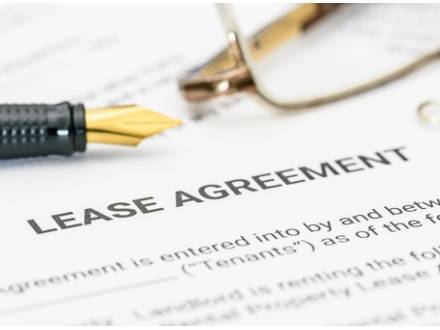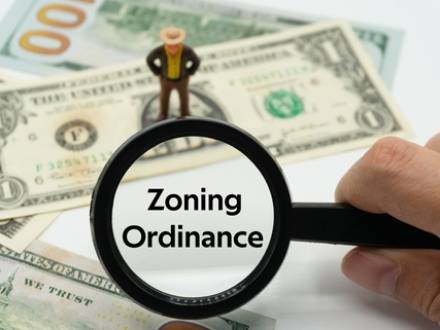Naperville, IL 60563
Recent Blog Posts
What Is the Role of Discovery in Commercial Litigation?
 If your company becomes involved in a lawsuit, it can help to familiarize yourself with one of the most critical and often least understood aspects of litigation: the discovery process. Whether you are the plaintiff or the defendant, discovery can significantly affect the outcome of your case and the cost of resolving it. Understanding how litigation discovery works and what it means for you can give you an edge in a lawsuit. An experienced Naperville, IL commercial litigation attorney can represent you in your commercial litigation.
If your company becomes involved in a lawsuit, it can help to familiarize yourself with one of the most critical and often least understood aspects of litigation: the discovery process. Whether you are the plaintiff or the defendant, discovery can significantly affect the outcome of your case and the cost of resolving it. Understanding how litigation discovery works and what it means for you can give you an edge in a lawsuit. An experienced Naperville, IL commercial litigation attorney can represent you in your commercial litigation.
What Is Discovery?
Discovery is the formal process whereby each party in a lawsuit extracts information related to the case. This includes documents, emails, financial records, contracts, and even internal communications. It may also involve answering written questions (interrogatories), sitting for depositions (sworn testimony outside of court), or producing electronic data. The purpose of discovery is to ensure both sides have access to the facts before trial. In many cases, particularly in commercial litigation, it is the primary source of evidence in a lawsuit. It is such an important tool that smoking gun documents have won or lost cases.
What Are Your Options for Challenging Illinois Zoning Use Laws?
 Zoning ordinances can have a significant impact on commercial real estate owners and developers. They are intended to ensure that neighborhoods and land are used according to what is best for the community. They also ensure standards are in place for land development. Zoning ordinances determine how land can be used–whether for residential, commercial, or industrial use.
Zoning ordinances can have a significant impact on commercial real estate owners and developers. They are intended to ensure that neighborhoods and land are used according to what is best for the community. They also ensure standards are in place for land development. Zoning ordinances determine how land can be used–whether for residential, commercial, or industrial use.
They can create conflict for a commercial real estate business owner seeking to develop their property to its fullest potential. The good news is that it is possible to challenge zoning decisions. An experienced DuPage County, IL zoning and development attorney can advise you on your options for challenging zoning use ordinances, and represent you throughout the process.
What Are the Options for Challenging Zoning Use Ordinances?
There are several different ways to challenge zoning use laws. If your request is denied, you can appeal that decision.
Common Commercial Real Estate Lease Disputes and Resolutions
 Lease agreements are an integral part of business in the United States. These contracts state the length of the lease and terms that each party, tenant and landlord, must adhere to while it applies. When landlord-tenant disputes arise, either side may need the support of a Naperville, IL commercial real estate dispute attorney to help iron out the issues in accordance with Illinois law.
Lease agreements are an integral part of business in the United States. These contracts state the length of the lease and terms that each party, tenant and landlord, must adhere to while it applies. When landlord-tenant disputes arise, either side may need the support of a Naperville, IL commercial real estate dispute attorney to help iron out the issues in accordance with Illinois law.
Commercial Lease Disputes in Illinois
Disputes between business owners and landlords can occur over almost anything. However, among the most common issues are:
-
Unpaid rent: Failure to pay rent on time can present problems. When a tenant fails to pay rent, the landlord must follow Illinois law concerning notices and eviction.
Do I Need Legal Assistance for a Leaseback Agreement?
 Buying or selling commercial property can be stressful under the best circumstances. When a business needs an influx of cash, one option may be a leaseback agreement. Unlike residential leaseback agreements, commercial leaseback agreements can be used for a long duration, allowing a business owner to continue to use the property while no longer owning it. If you believe a leaseback agreement can potentially remove some of the stress of keeping your business profitable, speak to an experienced Oak Brook, IL real estate lawyer from Lindell & Tessitore, P.C..
Buying or selling commercial property can be stressful under the best circumstances. When a business needs an influx of cash, one option may be a leaseback agreement. Unlike residential leaseback agreements, commercial leaseback agreements can be used for a long duration, allowing a business owner to continue to use the property while no longer owning it. If you believe a leaseback agreement can potentially remove some of the stress of keeping your business profitable, speak to an experienced Oak Brook, IL real estate lawyer from Lindell & Tessitore, P.C..
What Are the Basics of a Commercial Leaseback Agreement?
When real estate that is owned by the seller is sold to another person or entity and then leased back to the first owner for a long duration, this is known as a commercial leaseback agreement. Companies often use leasebacks when they need the cash invested in the property for other purposes but still need the property as an asset to operate their business.
What to Know Before Requesting a Zoning Variance
 Municipalities and counties have zoning ordinances in place that outline what kinds of property can be built in a certain neighborhood or area. Zoning laws exist to ensure that neighborhoods maintain a certain character and to prevent unseemly real estate from being built where it harms the character or living environment of a neighborhood. For example, residents of a residential area with single-family homes might not want a factory or skyscraper in their midst, and zoning ordinances are designed to prevent those types of occurrences.
Municipalities and counties have zoning ordinances in place that outline what kinds of property can be built in a certain neighborhood or area. Zoning laws exist to ensure that neighborhoods maintain a certain character and to prevent unseemly real estate from being built where it harms the character or living environment of a neighborhood. For example, residents of a residential area with single-family homes might not want a factory or skyscraper in their midst, and zoning ordinances are designed to prevent those types of occurrences.
Sometimes, however, it is possible to request a zoning variance. A zoning variance is an exception that can be requested to build property that does not fit the description in the zoning ordinances. An experienced Illinois zoning variance attorney can represent you throughout the complex process of obtaining a zoning variance.
Rent Abatement Clauses for Commercial Tenants
 Commercial leases offer significant room for negotiation between landlords and tenants. One provision that reflects this room to negotiate is the commercial rent abatement clause, an incentive sometimes negotiated by commercial tenants or offered by commercial landlords. Commercial rent abatement clauses temporarily reduce or eliminate rent payments under certain circumstances. An experienced commercial lease attorney in Naperville, IL can negotiate a commercial rent abatement.
Commercial leases offer significant room for negotiation between landlords and tenants. One provision that reflects this room to negotiate is the commercial rent abatement clause, an incentive sometimes negotiated by commercial tenants or offered by commercial landlords. Commercial rent abatement clauses temporarily reduce or eliminate rent payments under certain circumstances. An experienced commercial lease attorney in Naperville, IL can negotiate a commercial rent abatement.
What Is a Commercial Rent Abatement?
Commercial rent abatements reduce or eliminate the tenant’s obligation to pay rent for a period of time.
What Are Common Types of Commercial Rent Abatements?
Rent Abatement During Tenant Improvements
Key Buy-Sell Agreement Clauses
 As a business owner, you are focused on growing the business while juggling day-to-day operations. As you think about your long-term business goals, you should consider having in place a buy-sell agreement. It can protect your company in the event of an unforeseen circumstance. An experienced Naperville, IL business law attorney can advise you on whether your business could benefit from signing a buy-sell agreement.
As a business owner, you are focused on growing the business while juggling day-to-day operations. As you think about your long-term business goals, you should consider having in place a buy-sell agreement. It can protect your company in the event of an unforeseen circumstance. An experienced Naperville, IL business law attorney can advise you on whether your business could benefit from signing a buy-sell agreement.
What is a Buy-Sell agreement?
A buy-sell agreement is a tool of succession planning for your business — planning for what happens to your business in the event you or a co-owner either wants to exit the business or must do so due to an unforeseen circumstance such as incapacitation, death, divorce, or bankruptcy. A buy-sell agreement ensures your business survives changes in management, and it is an especially useful tool in partnerships, limited liability companies, and closely held corporations.
Terminating a Commercial Lease Early – What Every Tenant Should Know
 If your business needs have changed, you may find yourself contemplating having to terminate your commercial lease early. For example, your business might be undergoing financial difficulties, you might be rethinking your brick-and-mortar strategy, or your company might be growing and need more space. Whatever the reason, in such a case an experienced real estate attorney can advise you on your rights and obligations when terminating your commercial lease prior to the end of the contractual term.
If your business needs have changed, you may find yourself contemplating having to terminate your commercial lease early. For example, your business might be undergoing financial difficulties, you might be rethinking your brick-and-mortar strategy, or your company might be growing and need more space. Whatever the reason, in such a case an experienced real estate attorney can advise you on your rights and obligations when terminating your commercial lease prior to the end of the contractual term.
What Happens if You Terminate Your Lease Early?
To legally terminate a commercial lease early, Illinois law requires you to notify the landlord. The consequences of breaking your commercial lease early will depend on several factors, including Illinois law and the specific terms of your lease agreement. Depending on the facts of your case, you may face the following:
Construction Litigation Time Limitations In Illinois
 One of the most important considerations when deciding whether to file a lawsuit arising out of a construction project is whether the claim is time-barred, meaning that the period of time during which the claim may be brought has passed. An Illinois construction law attorney can advise you on how Illinois law addresses the time limitations for bringing construction claims. These statutes also apply to legal claims arising out of injuries related to the construction.
One of the most important considerations when deciding whether to file a lawsuit arising out of a construction project is whether the claim is time-barred, meaning that the period of time during which the claim may be brought has passed. An Illinois construction law attorney can advise you on how Illinois law addresses the time limitations for bringing construction claims. These statutes also apply to legal claims arising out of injuries related to the construction.
There are two primary laws that govern the time period for filing a construction lawsuit in Illinois: the statute of limitations and the statute of repose.
Illinois Statute of Limitations
The Illinois statute of limitations on construction projects governs the time period claimants have for filing a lawsuit. Claimants in a construction suit have four years to file the lawsuit from the time they knew or should have known of the existence of the construction claim. If claims are not filed within four years from the time the claimant knew or should have known of the construction defect, the claimant will lose the right to make that claim in a court of law.
What Are the Pros and Cons of Offering Equity to Investors?
 Securing financing is usually the biggest challenge for startups. New entrepreneurs often find themselves in a race against time, trying to obtain funding for operations, payroll, and product development before they come to a halt. Startup owners may use a number of methods to raise capital such as crowdfunding, bootstrapping from friends and family, and loans.
Securing financing is usually the biggest challenge for startups. New entrepreneurs often find themselves in a race against time, trying to obtain funding for operations, payroll, and product development before they come to a halt. Startup owners may use a number of methods to raise capital such as crowdfunding, bootstrapping from friends and family, and loans.
One of the most popular ways startups obtain financing is from investors such as venture capital firms. When investors put their money into a startup, they often want equity in exchange. Equity means the investor receives a share of the company. Depending on the investment, an investor’s equity can be quite large. This could give the investor influence in the company’s decisions.
Offering equity to investors has advantages, but it also has its drawbacks. In this article, we will explore the pros and cons of investor equity, as well as how to contact an Illinois corporate law attorney for legal guidance and protection.




